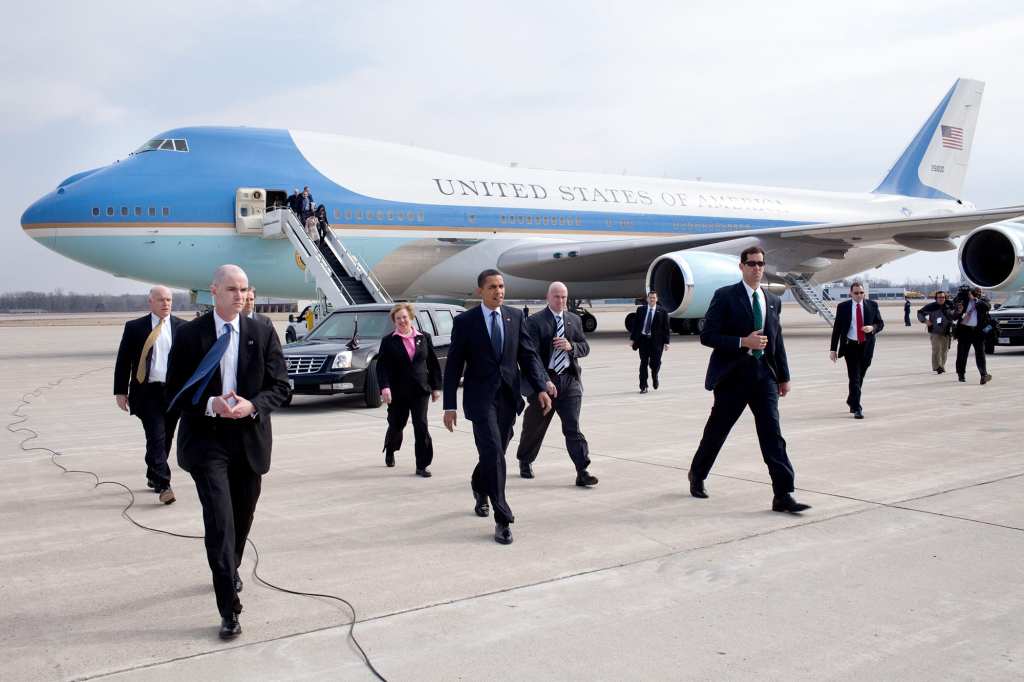Trending Now
Okay, fine, it’s just secrets a few agents have let slip now that they’re retired but still – pretty cool, if you ask me.
The Secret Service was formed, ironically as it would turn out, on the day President Lincoln was assassinated at the Ford Theatre. At the time they were charged with protecting the nation’s currency. Their role wasn’t extended to include protecting the president until the successful 1901 attempt on President McKinley’s life.
And the rest, as they say, is history.
Even though we’ll never know all of their secrets (as it should be), it’s fun that former agents will share some – and that’s exactly what agents Tim Wood and journalists Ronald Kessler and Jeffrey Robinson (all of whom wrote books on the subject) did in a recent interview.
#10. The president always has to be ready for his closeup.
At least, they do during motorcades. Since the Kennedy administration, motorcades have been filmed in case catastrophic events need to be retraced. Agents study film as part of their training, and just recently someone who threw something at President Trump at Mar-A-Lago was caught after he was seen on film.
#9. They might pick up new hobbies – or rather, share the president’s.
Wood uses President Clinton as an example of having to learn new things in order to stay alert and at the president’s side: riding and running.
Fortunately, Clinton was not a master horseman like Reagan, so it was just a simple trail ride. But Clinton was a well-conditioned jogger, which forced agents to be in great shape in order to be able to keep up. You’re doing your job while running for five miles.
#8. They travel with bags of the president’s blood.
The handful of agents assigned to protect the commander-in-chief and his family are trained in “ten-minute medicine,” which basically means they have the ability to keep the president alive long enough for professional help to arrive and take over. Jeffrey Robinson, co-author of Standing Next to History, explains that the president is “never more than ten minutes from a trauma center,” and they keep an agent posted at the hospital to get to know the operating room staff.
That’s where the blood comes in – they have it in the event that the president needs an immedaite blood transfusion.
#7. They keep as close an eye on the president’s food as on the man himself.
All of the president’s food is prepared while the Secret Service watches, and he brings his own chef on the road. And if you see him out posing at a local sandwich shop or smiling next to a falafel food cart, he’s probably not going to get to actually eat it – sad face!
He can order a pizza (thank goodness!), but they have it delivered to the Naval Observatory so there’s no way to know who it’s for and the risk can be reduced.
#6. They practice getting shot.
Agents take part in training scenarios, in which someone acts as the president and the others practice handling different threats – and that includes taking bullets. Wood calls them non-lethal “marking rounds” and they leave a sting and a color behind, so agents can tell where the target was hit.
#5. They go to the bathroom with the president.
And the doctor’s office and a bunch of other places the president would probably rather be alone. During Reagan’s administration, someone even went with him to his prostate exams.
The job might have perks, but I’m guessing this isn’t one of them.
#4. They need a drink after “working the rope.”
That means when a president greets the public in a planned or un-planned moment, and according to Wood, it’s unbelievably stressful: “That’s where agents earn their money. You have no idea what an uncontrolled crowd might do.”
They wear those glasses so as not to tip people off to the fact that every moment is being studied, and also to protect their eyes in case any liquid or other harmful object is hurled their direction.
#3. They’re not glorified butlers.
They’re not there to carry bags or pick up breakfast from the corner bakery, and they’ll likely be super annoyed if you ask them to do any such thing. Robinson tells a story about VP Walter Mondale asking the SS to pick up his laundry, a request that didn’t fly.
#2. Their duties extend past the president himself.
According to Ronald Kessler, author of In the President’s Secret Service, the president can ask that Secret Service protection be assigned to people if they see a need. For example, some of the White House staff was assigned SS details after 9-11.
#1. They don’t actually swear to protect the president with their own lives.
While Kessler admits that it’s “understood that something like that could happen,” they “take every possibly step to avoid it,” and they never actually swear to do any such thing.
(h/t: Mental Floss)
We know you can choose a lot of sites to read, but we want you to know that we’re thankful you chose Did You Know.
You rock! Thanks for reading!






